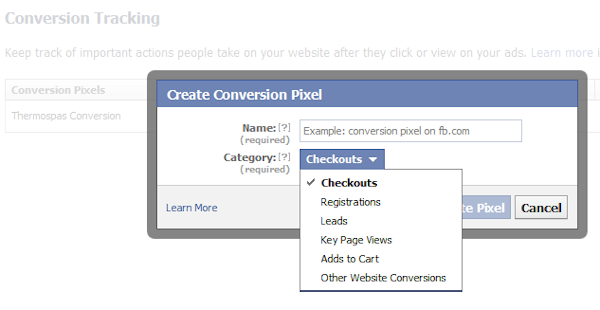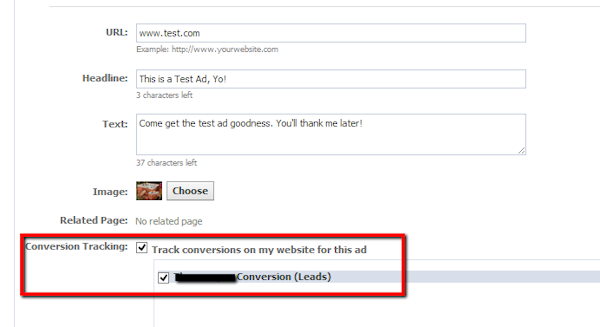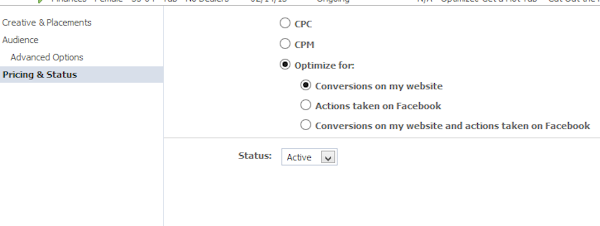If you’re like me, you’re likely still struggling to make your Facebook Ads campaigns meet performance goals. Facebook is an exciting marketing channel with tons of potential, but it can be a serious challenge. However, recent developments at Facebook may help you (and me) to finally turn the corner on improving performance.
The first feature is conversion tracking. How novel, right?
Facebook unsuccessfully launched a conversion tracking utility a few years ago. This time around it seems as though it may actually be working. And it is pretty easy to set up – just create your tag, copy and paste it onto the appropriate confirmation page on your website:

The one negative so far is that you must associate the conversion pixel/action at the ad level:

The second feature is Optimized CPM. This is Facebook’s foray into bid automation. You can set an optimized CPM for actions on Facebook (likes, shares, page views, etc.). But where things are getting really interesting is that you can now set an Optimized CPM for conversions on your website or conversions in combination with on-Facebook actions.

So all of these features are great, but do they really work? Well, I’ve got two quick case studies to share. One is regarding a campaign targeting page likes and how Optimized CPM helped to reduce the cost-per-action. The second is for a lead generation campaign where Optimized CPM helped to reduce the cost-per-lead (off-Facebook conversion).
Case Study 1
This campaign was created last fall. The sole purpose of the campaign was to expand the organization’s social reach by generating Likes on their Facebook page. The campaign targeted a small area in Oregon and was only aimed at women. Target cost-per-action = $2.
- First 3 months the average cost-per-action (like) was $3.31.
- At the beginning of month 4, Optimized CPM was enabled for Facebook actions.
- That first month, the cost-per-action (Like) dropped to $1.95.
- Over the next 3 months the average cost-per-action (Like) remained at $1.59.
Success! That was a 52 percent drop in cost-per-action. Not only did Optimized CPM help me to reach my target cost-per-action, I was able to exceed it consistently.
Case Study 2
This campaign was created within the past month. So, the data pool is relatively limited. Regardless, the results are still important to note.
The campaign targets older individuals with disposable income. The product is a big-ticket leisure item and nearly all marketing is based on lead-gen. The Facebook ads send visitors to an off-Facebook landing page where they must fill out a form to be considered a lead.
After installing Facebook’s conversion code, I let the campaigns run for a little over a week and confirmed that the numbers matched (within an acceptable variance) with my client’s back-end reporting system. Once this as confirmed, I was set loose to increase volume and reduce the cost-per-lead.
- The first 2 weeks the average cost-per-lead was $87.
- At the beginning of week 3, Optimized CPM was enabled for “conversions on my website.”
- The 3rd week cost-per-lead was $58.
Success! That was a 33 percent drop in cost-per-lead. Now, time will tell if this lower cost-per-lead can be sustained. Hopefully it can be reduced further.
Summary
There you have it – two brief case studies on how Facebook’s Optimized CPM can help to reduce your cost-per-action or cost-per-conversion. I’m confident that results will vary.
If you have tested Optimized CPM, I’d be curious to hear your results. Leave me a comment!

